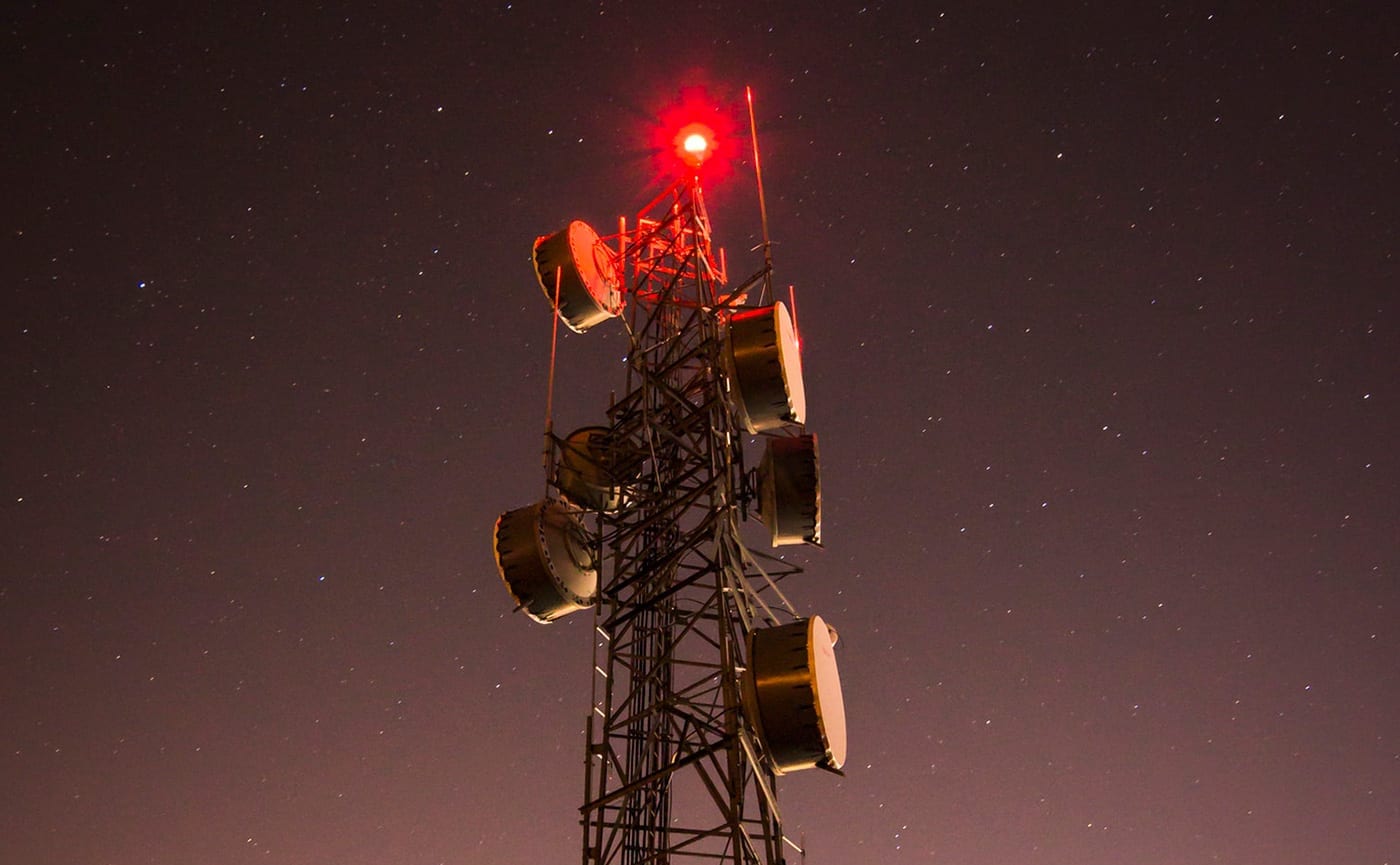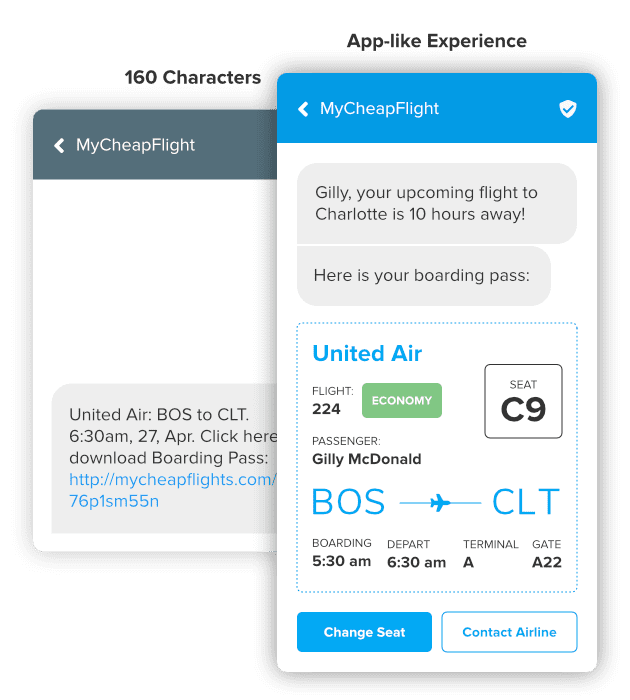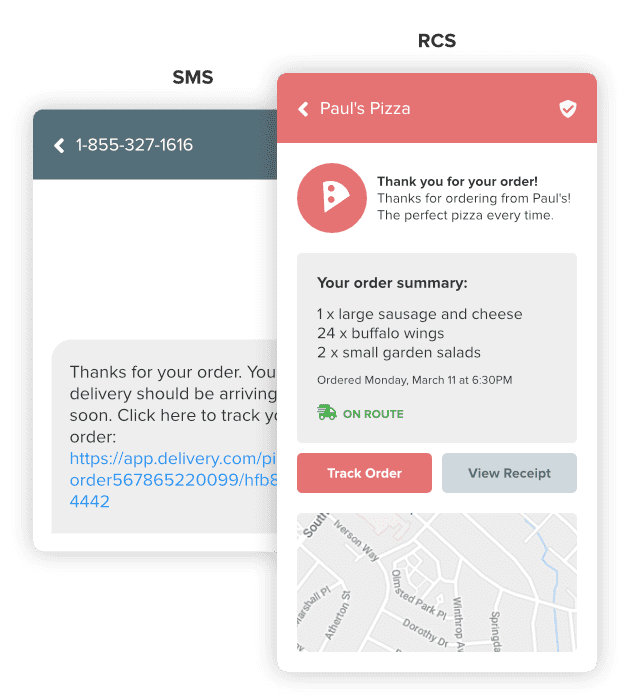All About Rich Communication Services and RCS Messaging (Updated)
Rich Communication Services (RCS) is a relatively new and still-developing mobile communications technology that’s poised to replace traditional SMS and MMS messaging.

Rich Communication Services (RCS) is a relatively new and still-developing mobile communications technology that’s poised to replace traditional SMS and MMS messaging.

Rich Communication Services (RCS) is an end-to-end software platform and IP-based messaging service. RCS is relatively new and still developing as a mobile communications technology that’s poised to replace traditional SMS and MMS messaging and redefine the application-to-person business space.
RCS impacts the whole mobile communications chain, from contacts management to calling to text message marketing. It’s often referred to as RCS messaging, but depending on the implementation, it might go by other names like Advanced Communications, Message+, or, in Google’s case, Android Messages. This article will help you better understand the basics of the RCS standard.
Rich Communication Services is a really exciting technology, and here’s why: It provides a powerful suite of next-generation features that transform traditional mobile phone communications into highly interactive, actionable, detail-rich conversations.
Maybe you’ve heard of SaaS, or Software as a Service?
Well, RCS is MaaP: Messaging as a Platform.
Think about how your favorite airline texts you with links to boarding passes and flight status updates.
Now, imagine receiving your boarding pass right inside your texting app instead of having to open your browser app.
And those flight status updates—imagine getting those inside your texting app, too, along with the weather forecast, terminal maps, and any other information you might want or need for your trip.
Need to make changes to your reservation? You’ll be able to do that from your texting app as well. Just click a button and it’s done!
Sounds pretty nifty, right?

It might help to think of RCS messaging as similar to mobile apps like Facebook Messenger, iMessage, WeChat, and WhatsApp. Rich Communication Services offers the same kind of advanced messaging functionality you get with those apps, but here’s the difference: RCS is built-in software.
It comes with the phone when you buy it. It’s ready to go right out of the box, just like your regular texting app. It doesn’t require you to download any third-party apps, set up user accounts, sign in to those accounts, or wonder if your friends are using the same apps as you are.
It just works … kind of like your default text messaging app just works.

If you want to get a little bit more technical, Rich Communication Services is a hardware-agnostic, end-to-end software platform and IP-based messaging service that offers legacy support for SMS and MMS.
Interoperability is fundamental to RCS development—the whole point is for it to be compatible across all user experiences, regardless of manufacturer, mobile operator, carrier network, or mobile device.
The GSM Association—which represents the interests of mobile operators around the world and has handled oversight for the global RCS initiative since 2008—publishes specs for developing and deploying Rich Communication Services in its Universal Profile.
There have been two official Universal Profile releases so far, one in November 2016 and another in December 2017.
Here are the current standardized RCS core services:
And here’s a list of specific text messaging features enabled by RCS:
The Universal Profile also outlines RCS support for developer options like APIs, plug-in integration, privacy control, spam protection, and improved authentication and app security.

There are multiple benefits for companies that embrace RCS messaging now, while it’s still an evolving technology:
First of all, it looks like there’s going to be a whole lot of money at stake with RCS. The GSMA has estimated that the RCS application-to-person messaging industry will be worth about $74 billion by 2021.
RCS allows businesses to add their own branding to the messaging experience, including things that SMS and MMS don’t support like custom colors and business logos. This is a huge benefit for both businesses and consumers because it dramatically improves brand recognition.
RCS presents a big opportunity to participate in testing an up-and-coming technology and being part of the push to make RCS the default messaging experience globally. Companies that deploy RCS will have the chance to help refine the GSMA Universal Profile and to form partnerships with other industry players on the cutting edge of mobile communications.
Plus, enabling RCS makes a brand look innovative and forward-thinking … and consumers are prone to notice that sort of thing.
Finally, and perhaps most importantly, consumers are already primed for the technology. According to the GSMA, “137 million people are already using RCS monthly.”
Below are some telling stats from a 2017 OpenMarket survey:
Rich Communication Services has widespread support from some of the biggest names in the industry. Although universal adoption is not yet secured, it’s a very good possibility in the long run.
Google, for instance, has enabled RCS on certain Android devices. It also offers a universal client and cloud services via Jibe to help mobile operators and providers deploy RCS and connect to the global RCS network without having to build their own infrastructure. Microsoft is on board with its operating system, too.
Samsung, Huawei, HTC, LG, Motorola, and several other device manufacturers all support the GSMA’s Universal Profile, and so do dozens of different mobile operators in multiple countries around the world.
There are still some barriers in the path of RCS. For instance, it requires no small amount of time and money for manufacturers to update their processes and start shipping devices with RCS compatibility.
And, despite the focus on interoperability, it’s still possible for different providers to implement RCS in different ways, which can result in compatibility issues across devices, carriers, and operators.
There’s also a pretty big “What If” in all this: So far, the almighty Apple has not offered support for RCS standards, instead choosing to focus on proprietary services like iMessage. Given Apple’s dominance in the mobile space, this is a significant complicating factor when it comes to global adoption.
The GSMA has a page dedicated to RCS case studies if you’d like to see some demos of RCS messaging in action. You can also check out three of the videos below.
Give them a watch—they’re pretty cool!
You may be wondering— if RCS is so great, why isn’t everyone jumping on the chance to make it happen? The trick with RCS implementation is that the two parties who can really help it take off are at a stalemate. The companies who manufacture devices (like Apple, and Android) have to take steps towards implementing RCS programming into cell phones. But they don’t want to do that until cell phone providers (think Verizon, Sprint, AT&T) start factoring RCS into phone plans, and vice versa.
Making RCS totally accessible across all devices requires complete collaboration between the two parties, and neither one is ready. Some strides in the right direction have been made, and the progress has certainly caused some excitement. For example…
Here at SimpleTexting, we’re hard at work building RCS support into our platform. It’s not available yet, but it will be eventually … so be sure to check back every once in a while for updates.
Better yet, sign up for a free trial and start experimenting with our platform now! That way you’ll be up to speed when we add Rich Communication Services to our list of feature offerings.
Drew Wilkinson is the Head of Marketing at SimpleTexting. Drew has more than a decade of experience managing successful integrated marketing programs to build brands, raise awareness, and generate demand.
More Posts from Drew WilkinsonOn September 1, 2025, a new Texas regulation takes effect that changes the way companies can send text messages to consumers in the state. Here’s what you need to know.
ReadIt's a new year and that means new text marketing trends in 2024. Get our firsthand insights on what your customers want and how to give it to them here.
ReadStart a text marketing campaign or have a 1-on-1 conversation today. It's risk free. Sign up for a free 14-day trial today to see SimpleTexting in action.
No credit card required